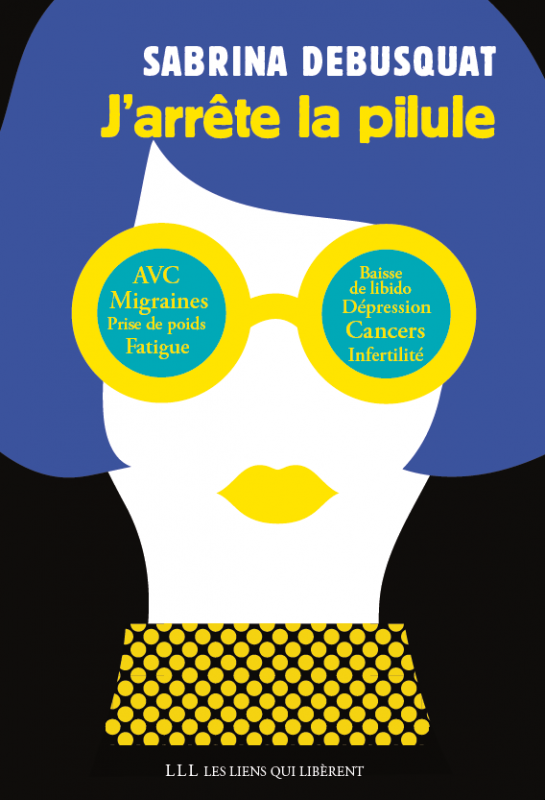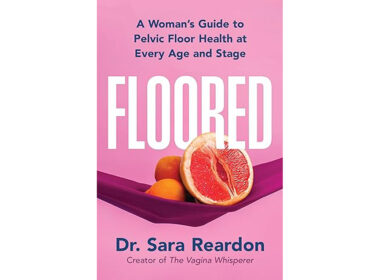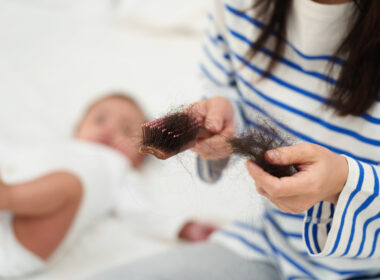Increasingly women in France (my homeland) are dropping the Pill and avoiding hormonal contraceptives in general. In a HuffPost article, independent journalist and French public radio host Sabrina Debusquat explains why. She conducted a survey of 3,616 French women who had taken the Pill and found out why 91% had stopped at least one time. After she published the results, the media and medical professionals responded by calling women’s reluctance a “defiance” toward the Pill, suggesting that women are misled, mistaken, and guided by fear rather than reason. “When we ask them, we realize that the reality is very different,” writes Ms. Debusquat. Here are women’s main reasons for dropping the Pill, she reports.

“Because of the minor but problematic side-effects”
The top reason why women quit the Pill is “side effects that are [considered] benign but problematic.” Among the respondents of the survey, 70% reported they experienced side effects and the full report reveals how serious and endemic these problems are: 69.6% reported a loss of libido, 53.6% weight gain, 51.9% mood disorders (blues, depression, irritability), 36% migraines, 34.2% vaginal dryness. These are typical side-effects that doctors will try to correct by changing a prescription but tend to consider a minor and acceptable part of being on contraceptives. French women are no longer OK with that. Ms. Debusquat calls modern women the “no-Pill generation” and writes that they “consider that beyond the risks of cancer or blood clots, experiencing reduced libido, migraines, repetitive vaginal infections and any pain that spoils a good part of their lives is not ‘benign.’”
“Because it’s better for my health”
Women are aware that it is not neutral to take a medication. The side-effects are signs that taking the Pill is not just blocking a mechanical process within their body (stopping ovulation, changing the cervical mucus or preventing the implantation of an embryo in the uterus). They realize it’s affecting their bodies more generally. Since 2013, France has become better aware of the risks of blood clots after a high profile report of the number of accidents caused by the 3rd and 4th generation pills appeared in the national newspaper Le Monde. Among the women surveyed by Debusquat, 6.9% had experienced a serious health problem diagnosed by a doctor and related to the pill.
“Because I refuse to take medication or hormones if I’m healthy”
The no-Pill generation “questions the principle of medicating contraception and rejects the idea that contraception must rhyme with side-effect risks,” writes Ms. Debusquat. More and more, a woman wants to be in touch with her natural body, to respect it just as she wants to respect the environment. Taking the Pill means using doses of powerful hormones to interfere with a healthy process in her body: the cycle, ovulation, and a number of good effects achieved by a healthy hormonal balance.

Other reasons to stop the Pill in the survey included: “to return to my natural cycles,” “because of mistrust of the pharmaceutical industry,” “because of concern for the environment,” “to be consistent with my environmentally friendly lifestyle.”
Here are a few more important facts from this study:
- 71.5% of the respondents said they experienced positive effects from stopping the pill, such as improved libido (70%), feeling reconnected to myself and my body (59.2%). Fewer mood swings, depression, or unexplained anxiety (34.8%), weight loss (29.2%), more energy (25.5%).
- After stopping the pill, some women continued to experience side-effects, although it is not specified whether these side-effects were present before or caused by the Pill: ovarian or uterus pains, mood swings, acne, breast tenderness. For 24%, these side effects lasted over a year.
It was also quite upsetting to read that 24% of respondents said they had gotten on the Pill because their medical provider had imposed it or not offered any alternative and that when they stopped, 30% said that they had been discouraged to do so, most often by a medical professional.
Ms. Debusquat doesn’t promote an alternative, but she is asking for a new dialog on the topic of family planning. She writes: “No one speaks about the real and fundamental problems: the suffering caused by contraceptives (90% of which are carried by women) and the pollution generated by synthetic hormones.” She says that the bigger question is not whether women should stay on the pill, but “what can our society do to meet this new demand by women for contraception without side-effects, not polluting and more egalitarian?”
Many of the women who stopped the Pill in the study started using a copper IUD (30%), a popular alternative in France. However, 9% reported using a fertility awareness method, most often sympto-thermal (6.2%), which shows a remarkable new trend, which Le Monde reported already in 2014. In the past few years, more and more people are communicating effectively about fertility awareness to the French public, like Cycles Naturel , Sympto.org , Pryska DuCoeurJoly. It’s exciting to see the growing interest in family planning approaches that answer Sabrina Debusquat’s quest for a method without side-effects, truly environmentally friendly, and most egalitarian, since it works as a partnership.
It’s very likely that women in the US and other countries experience similar feelings about the Pill as French women. Even as the promotion of hormonal contraceptives by pharmaceutical companies is global, women’s quest for better family planning methods is becoming universal. It calls for fair and honest recognition of fertility awareness methods by medical authorities worldwide and the imperative to make them more accessible to all women.
When this article refers to fertility awareness methods (FAM), or natural family planning (NFP), we are referring to Fertility Awareness-Based Methods, evidence-based methods of cycle charting which can be used as effective forms of natural birth control when learned by a certified instructor.
Last updated October 28, 2020.







Thank you so much for this article. It’s so scary that young wimen on the pill seem to ignore the crucial fact that the pill is a #1 carcinogen, in the same category as cigarette smoking. All these women who tout being environmentally sensitive and eat organically ought to have this distressing fact pummeled into their brains
‘After she published the results, the media and medical professionals responded by calling women’s reluctance a “defiance” toward the Pill, suggesting that women are misled, mistaken, and guided by fear rather than reason.’
It is the same old, mysogynist attitude: “disobedient, stupid, emotional, and irrational women”. They just need to do what they are told by people who know better than they what they need.
Wait until the women who switched to using IUD’s begin in large numbers to discover the dangers and try to have them removed (“try” because doctors give women a hard time about removing them and because contraceptive devices often travel in the body and cannot easily be found.) The narrow-minded, contraception-at-all-costs, contraception-cures-all-ills crowd will be up on arms again.
Thank you, Natural Womanhood, for your work and information.
I’m the NFP instructor for my parish. I explained to my priest that it can take a long time for a woman to have an IUD removed, because finding a doc who will do that, or just getting an appointment, can be difficult. I know some who will remove them free of charge, but it’s not the norm. 🙁
Ah, “choice”. Smh
When I first tried to seek an alternative to the pill (put on as a teen, before I knew to question such things), the nurse didn’t even relay my question to the doctor and told me that no one could tell me what to do with my body (irony alert). It discouraged me from asking again for over a year. It hurts my heart when I see other women in the same place, having been put on without their doctors actually diagnosing a problem, or without discussing alternatives. We can’t tout informed choice and then refuse to actually give women a choice.
Natural Family Planning works. The French are so savvy!
Hello, I’m the french journalist that write the book and mde the survey, thank you for using it. I display it for free and in full on the site of the book here for those whom are interested : http://jarretelapilule.fr/les-faits/sondage-les-femmes-et-la-pilule-resultats/
Merci pour cette information et pour votre travail de sensibilisation. Si a l’avenir vous avez d’autres temoignages sur des sujets similaires, je suis interesse. Vous pouvez aussi me contacter a gerard@naturalwomanhood.org.